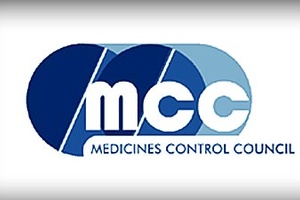
South Africa’s Medicines Control Council will continue to deny compassionate access to bedaquiline that for many drug resistant patients is their last hope.
South Africa’s Medicines Control Council (MCC) has confirmed that it will continue to deny compassionate access to a TB drug that for many drug resistant patients is their last hope.
Compassionate use allows for the dispensing of investigational drugs (with good efficacy and safety in trials) before they are registered and enter the market.
Bedaquiline (TMC207) is being made available under compassionate use in several countries with stringent regulations on drug safety - including France, Germany and the United Kingdom.
These countries have made the drug available under compassionate use regulations, despite the fact that they have far less patients.
Bedaquiline is not registered anywhere in the world, but its application for registration is being fast tracked in the United States and Europe seeking conditional approval to make it available.
Médecins Sans Frontières in South Africa have attempted to use bedaquiline for a select few patients with pre-extensively drug resistant (pre-XDR) and multi-drug resistant (MDR) TB. However, several attempts by MSF to gain compassionate access have been declined by the MCC.
For many of these patients there is no other hope and bedaquiline offers a last chance of survival. A number of patients have died while waiting for compassionate access to be granted.
Dr Gilles van Cutsem, Medical Coordinator at MSF in South Africa, said the MCC reluctance to allow compassionate use in South Africa is the major hurdle to access at the moment.
“Their call for a clinical trial is a delaying tactic and de facto prevents access to this lifesaving drug for patients who need it. Interestingly the only other countries I’m aware of who developed a clinical trial approach for expanded access as opposed to compassionate use are the Russian Federation and Lithuania,” said Van Cutsem.
MCC spokesperson Fidel Hadebe confirmed that the MCC has declined a request by MSF for patients to access bedaquiline.
He said it was resolved at an MCC meeting in May that patients currently receiving bedaquiline as part of their ongoing treatment protocol in accordance with prior MCC approval be allowed to complete their therapy.
“It was also resolved that current data available to the MCC remains Phase II in nature which is insufficient to allow for approval for use outside of a well designed clinical trial,” said Hadebe.
The World Health Organisation is supporting compassionate access and has urged countries to bring their regulations in step facilitating compassionate access, especially for DR TB patients.
Dr Helen Cox, epidemiologist at MSF SA, said they were yet to be given an explanation as to why the MCC reversed an initial decision to grant compassionate access to bedaquiline
Several attempts to get the MCC to explain this reversal were unsuccessful.
In another development the health department is also accused of closing an avenue which could allow use – expanded access.
Expanded access is when manufacturers make Investigational New Drugs available to treat patients who have a serious condition and who cannot participate in a controlled clinical trial.
MSF and other roleplayers have worked closely with the health department to develop an expanded access proposal that had to be submitted to the MCC. However, the proposal has been stuck in the health department for no apparent reason.
A health department official said the person who would be able to comment was on sick leave.
Timeline: The following outlines the attempts by MSF to gain access to bedaquiline:
Health-e